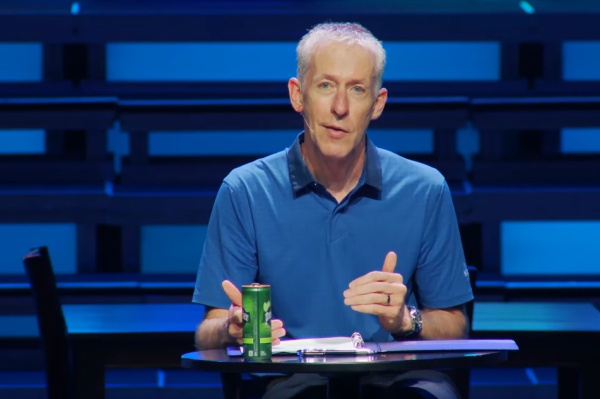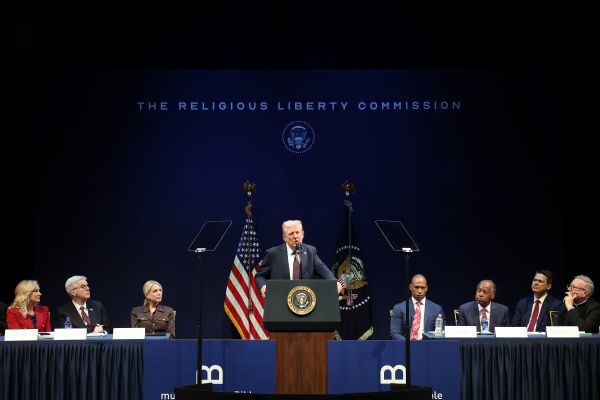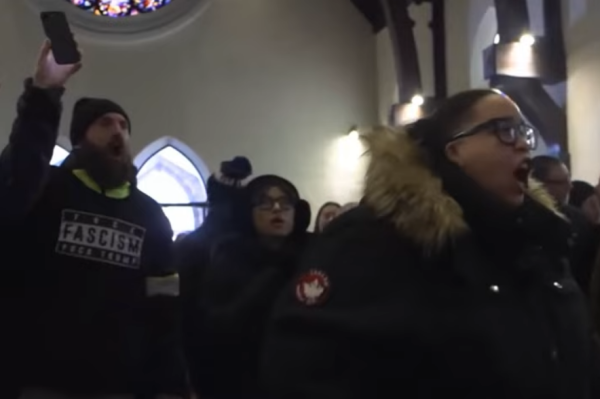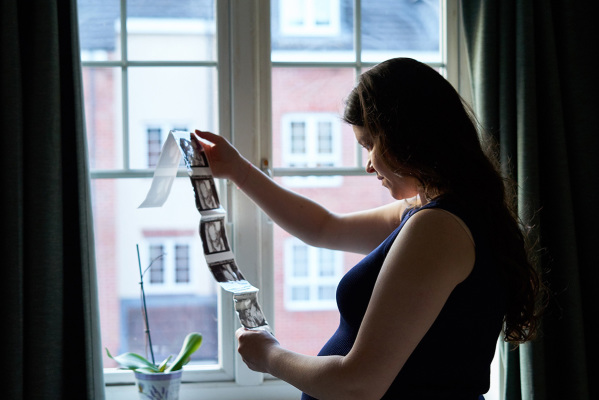Josh Hawley demands answers from Biden admin. regarding rule change for religious worker visas
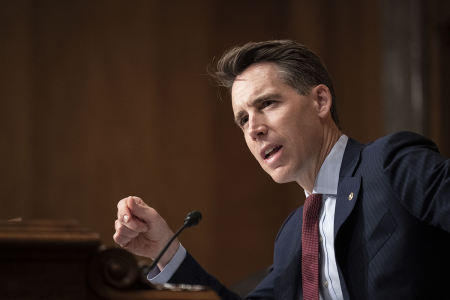
Sen. Josh Hawley, R-Mo., is demanding answers from the Bureau of Consular Affairs (CA) regarding a recent procedural change to green card rules that he fears will effectively force foreign-born religious workers out of the United States in favor of illegal immigrants.
The U.S. State Department changed its interpretation of a rule that prorated EB-4 visa allocation to El Salvador, Honduras and Guatemala, announcing that tens of thousands of applications for neglected or abused minors from those countries were being placed in the wrong queue to await green cards, The Associated Press reported.
Because religious workers are also on EB-4 visas, Hawley raised concern that the rule change will negatively impact them when they attempt to renew their residency.
"It has come to my attention that a recent State Department rule created a massive backlog of employment-based, fourth preference category (EB-4) visas, which is adversely affecting faith-based employers in Missouri," Hawley wrote in his Nov. 15 letter to CA Assistant Secretary Rena Bitter.
"Concerningly, the Biden administration seems to have pushed Christian missionaries to the back of the visa line — and allowed illegal aliens to cut ahead of them," he continued. "It is incumbent upon your agency to provide relief to my constituents and religious organizations across the country who stand to be greatly harmed by this abrupt change in policy."
Citing U.S. Citizenship and Immigration Services (USCIS) data, Hawley noted that of the 105,267 approved petitions awaiting approval for EB-4 visas as of March, 84,168 petitions were from El Salvador, Honduras and Guatemala, while 866 remained for religious workers. Of the nearly 100,000 petitions from the three Central American countries, most were for "unaccompanied youth."
"Almost instantly, the Department’s rule added tens of thousands of petitions to the waiting list for EB-4 visas and thus created a lengthy backlog for such visas," Hawley wrote, adding that the obstacles now facing religious organizations are "unacceptable."
"Sadly, it appears that religious workers are collateral damage in the Biden Administration’s push to expand 'lawful pathways' for individuals who crossed the southern border illegally," he continued. Hawley demanded to know from the bureau "the specific actions your agency will take to expeditiously fix this situation."
Hawley's letter was prompted by the situation facing Stephanie Reimer, who has worked with a nondenominational Christian nonprofit in Kansas City, Missouri, since 2017.
Reimer told The Christian Post that she faces having to return to Canada for a year while she potentially waits a decade in the long queue caused by the rule change. She claimed the new rule could effectively push missionaries out of the U.S. altogether.
"If the waitlist is 11 years, then essentially America will be losing their ability to retain long-term missionaries, because we're not able to get lawful permanent residency at the moment," she said.
Reimer said that when she raised the issue with multiple lawmakers, most of them weren't aware that it was happening.
"They have no idea that this has been put into place," she asserted. "So the executive branch of the government made this decision without warning. And the legislative branch of the government, as far as my conversations with them, don't know about it. And when I've talked to them, they are very concerned."
As a Christian, Reimer said she's concerned to return to Canada, noting that her home country has "changed" in recent years and that she believes "it's definitely on its way to socialism, and that can produce really terrifying things."
"It's a very different country than when I left it," she insisted.
Reimer worries similar problems are manifesting in the U.S. For this reason, she is trying to raise awareness about her situation and those of other foreign-born religious workers in the country.
"I'm afraid this could be religious persecution, and I'm concerned about where this nation is going," she added.
Matthew Spaulding, an attorney with the American Immigration Lawyers Association who is representing Reimer, first sent Hawley a letter about his client's situation in May.
"[T]here are many ways in which religious workers are treated less favorably than non-religious workers, for no apparent reason," he wrote, according to a copy of the letter provided to CP.
"The differences have no valid basis in policy or procedure and are mostly regulatory in nature. These have to do with the ability of religious workers to remain working with their temporary visas beyond the limitations of their visas," he added.
Spaulding, who noted that Congress created the separate visa category for religious workers in 1991, told CP that he has dozens of clients facing similar situations in the wake of the rule change.
"Like anything else that is ultimately religious discrimination, I don't know that it's intentional but it's not paying attention to religious organizations and it's extremely harmful to them and to these religious workers," he said, adding that some of his clients are working with the homeless population and struggling immigrant communities.
Spaulding noted that Reimer and his other clients have worked hard to obey the law to maintain their green card status, but said they now potentially face being passed over in favor of those who have entered the U.S. illegally.
"You have to comply with the law, otherwise you can't get a green card if you fall out of status," Spaulding said. "If [Reimer] overstays, it's over. So she has to leave, whereas a person who comes across the border illegally right now is given work permits, indefinite stays, and things like that."
A spokesperson for the State Department told CP that they "recognize the importance of religious ministers and workers, as well as their U.S. employers who lead faith-based institutions."
"This recent change may impact some religious ministers and workers already present in the United States in R nonimmigrant status if they seek to remain in the United States," the spokesperson continued. "Such nonimmigrant religious ministers and workers may be able to utilize other existing pathways to lawfully remain in the United States while they wait for an available EB-4 visa."










